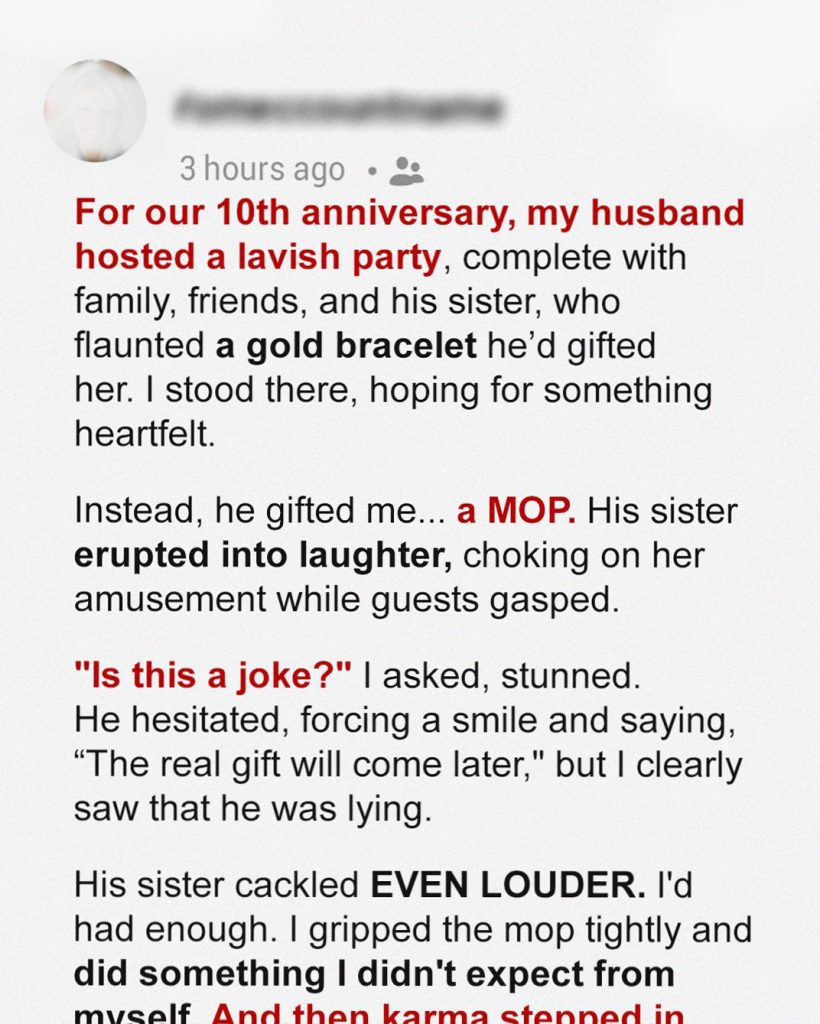Ten years of marriage. Ten years of shared memories, sacrifices, and silent compromises. I expected something meaningful—perhaps a handwritten letter, a weekend getaway, or even just a moment of genuine appreciation. Instead, Carl handed me a gift-wrapped box at our lavish anniversary party. Inside was a mop.
The room froze. His sister Anita burst into laughter, her champagne-fueled cackle echoing like a cruel soundtrack to my humiliation. Carl smirked, brushing it off as a joke. But I saw it in his eyes—there was no other gift. That mop was his message: I was the help, not the heart.
I stood there, gripping the handle, my smile cracking under the weight of betrayal. Anita flaunted the gold bracelet Carl had gifted her weeks earlier, mocking me with every glint. The party, once a celebration of love, had become a stage for ridicule.
But karma doesn’t need applause—it works quietly, precisely.
Later that evening, as guests mingled and Carl basked in his self-congratulatory glow, a family friend approached me. He was a lawyer, someone I’d helped years ago during a rough patch. He’d overheard the scene and pulled me aside. “You deserve better,” he said. “If you ever need help, I’m here.”
That night, I didn’t cry. I planned.
Within weeks, I’d quietly consulted the lawyer, gathered financial records, and prepared to reclaim my dignity. Carl, oblivious, continued treating me like background noise. Until the day I handed him divorce papers—at breakfast, beside the mop he’d gifted me.
He was stunned. Anita tried to intervene, but I was done playing the silent wife. I moved out, started fresh, and found work that valued my intellect, not my ability to clean.
Months later, I heard Carl’s business had tanked—his arrogance finally caught up with him. Anita? She’d moved on to mock someone else.
As for me, I found peace. The mop, once a symbol of insult, now hangs in my new home—not as a tool, but as a reminder: never let anyone define your worth.



